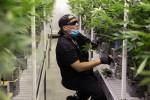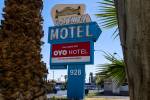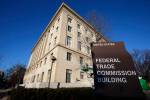Ethiopian community evolved in Las Vegas over last decades
The Ethiopian community has grown in Las Vegas since Redda G. Mehari arrived as a refugee in 1983.
Mehari, now managing director of the ECDC African Community Center laughed when asked if there was an Ethiopian market when he first arrived.
There was not.
Nor were there any Ethiopian churches at the time, so he would go to the Greek Orthodox church, he said. The first Ethiopian church opened in the late 1990s.
While the census counts just 6,677 people born in Ethiopia in Nevada and 6,541 in Clark County as of 2014, Mehari believes the number is higher. Because of confusion over the choices allowed for by the census survey, Mehari said many Ethiopians tend to mark “Black” or “African American” instead of writing in “Ethiopian.”
When including the U.S.-born children of Ethiopian and Eritrean parents, Mehari said the community is much bigger, because membership at the three biggest Ethiopian Orthodox Churches each number in the thousands. The small East African country of Eritrea gained independence from Ethiopia in 1993.
Nationwide, there were 188,061 foreign-born Ethiopians in the U.S. as of 2014, according to the most recent census data available.
Mehari said that many Ethiopian refugees came to Las Vegas in the 1980s, but that the numbers have since dropped off.
Between January 2010 and November 17, 2015, there were 71 Ethiopian refugees resettled in Nevada.
Mehari said that many recent Ethiopian arrivals get jobs at hotels or as cab drivers.
In the mid-1990s, Mehari said the Ethiopian business hub centered off of East Twain Avenue and Swenson Street.
“There are still some businesses there, but it’s kind of, it looks like it’s fading out,” said Mehari. “It’s gravitating towards here, southwest.”
In the early 2000s, the hub shifted to Flamingo and Decatur, he said.
Christie Batson, an associate professor of sociology at the University of Las Vegas, Nevada, said in an email, “Immigrants who are more settled in a particular community have developed both social capital and cultural capital to transition to new forms of employment or to become entrepreneurial.”
“In a tourist city like Las Vegas that is highly dependent on the service industry, immigrant workers have more opportunities to transition and experience upward mobility,” said Batson.
One of the first Ethiopian stores that opened in the neighborhood, was Bambi’s Ethiopian Market, now called Shola Market.
Within the last year, Mehari and others estimated that about 10 new Ethiopian-owned businesses had sprouted up in the hub which extends to West Tropicana Avenue.
Getachew Beyene, 34, a co-owner of Shola Market, said he worked as a truck driver before pooling money with two friends to purchase the market from the previous owner.
“I’m hoping after maybe five years, this place can grow to be like L.A.’s Little Ethiopia,” he said.
Contact Alexander S. Corey at acorey@reviewjournal.com or 702-383-0270. Find him on Twitter: @acoreynews























